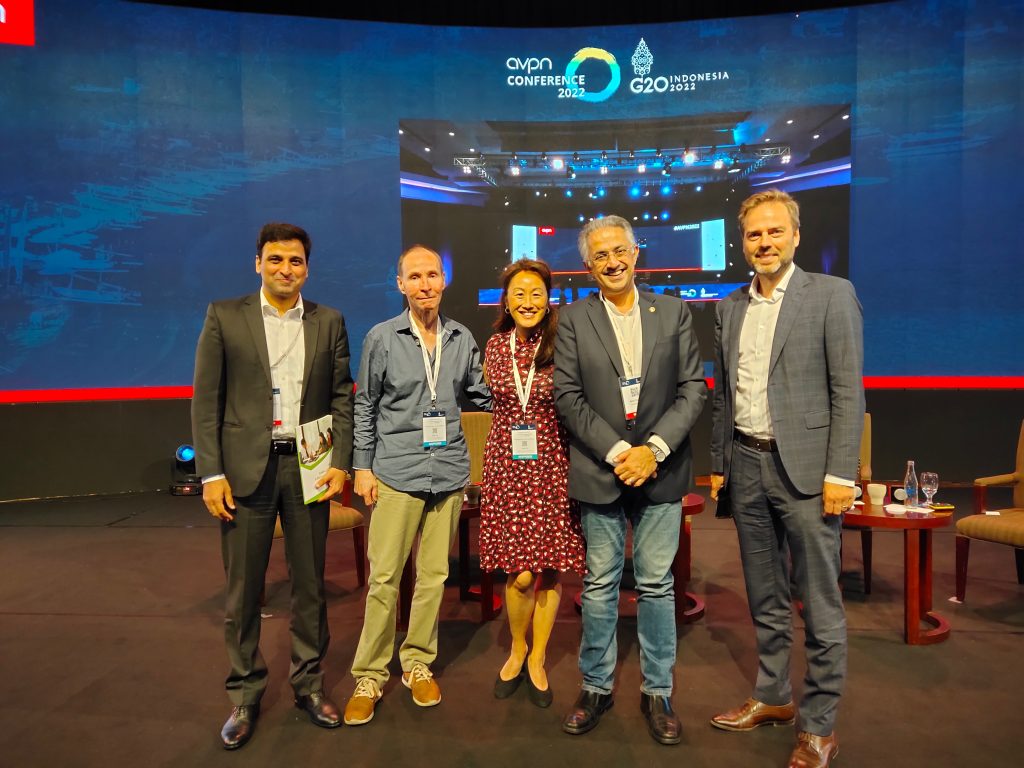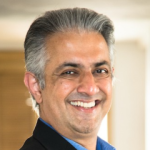‘If you haven’t failed, you’re not trying hard enough….’
It seems like a no-brainer. Learning from failure contributes to high-quality implementation, strategic innovation and improved governance and transparency. Yet despite the fact that all funders admit this, it’s a principle that often doesn’t translate into practice. Many foundations, their staff and their boards still find it difficult to have conversations about failure. In this event, we explored some examples of best practices in learning from failure, and how they can be adapted by other organisations.

This event took place live at the AVPN conference and was livestreamed globally. It was moderated by Alliance features editor Andrew Milner, and the panel included:
- Akhil Shahani, Managing Director, Shahani Group
- Jennifer Chen, CEO, The Chen Yet-Sen Family Foundation
- Sumit Joshi, Global Director, Lorinet Foundation
- Stefan Schaefers, Executive Director, KBF
Here are some key takeaways from each panellist.
Akhil Shahani
 Akhil Shahani spoke about failure in the context of his multi-generational family foundation, the Shahani Trust.
Akhil Shahani spoke about failure in the context of his multi-generational family foundation, the Shahani Trust.- While the first-generation founder of the trust succeeded in helping his immediate community, he failed other communities that perhaps needed more help. Shahani used this example to ask, ‘who decides what is success and what is failure?’
- In relation to family-owned trusts, Shahani also explored the question ‘who decides if the next generation should take over that foundation, or should it go to professional management?’
- In the third generation, the Shahani Trust has narrowed its focus to education and student employability, has started aligning with other funding partners, and brought in professional management. Shahani asked, ‘when should the family let go, when it comes to giving and impact?’
- ‘One’s the sort of failure that will sink the ship, and one’s the sort of failure that steers the ship.’
- He also advised funders ‘use the word ‘learning’ as an alternative term’ for failure.
- Shahani also advised funders to ‘understand what the beneficiary wants, and change it’ rather than having a top-down approach.
Jennifer Chen
 Jennifer Chen is the CEO of the Chen Yet Sen Family Foundation, which uses moonshot philanthropy to address early childhood literacy and vision correction.
Jennifer Chen is the CEO of the Chen Yet Sen Family Foundation, which uses moonshot philanthropy to address early childhood literacy and vision correction.- Chen spoke about their initial failure to secure distribution support from the World Bank for their lens-correcting technology, and how they pivoted to create their own charity ‘Vision for a nation’ in Rwanda.
- From this, the foundation started the Clearly campaign, which ultimately led to them getting a UN resolution passed in 2021, which was ‘vision for everyone by 2030.’
- They did this by ‘taking the risk, but making sure the risk was smart, and measuring the level of failure we were willing to accept.’
- Particularly in the context of the COVID-19 pandemic, Chen added that ‘you need to be able to change direction and be very nimble…to avoid bigger failures that might manifest themselves.’
Sumit Joshi
 Lorinet Foundation works to create sustainable systems that create a positive impact in vulnerable communities, in areas such as youth employment, clean energy and water in Mongolia and South East Asia.
Lorinet Foundation works to create sustainable systems that create a positive impact in vulnerable communities, in areas such as youth employment, clean energy and water in Mongolia and South East Asia.- They are adopting an ‘evidence-based approach’ and use ‘data and evidence…for monitoring, for course corrections, and adaptations’ in their programmes.
- Alongside the mindset of leadership and stakeholders, ‘a fundamental cultural shift is required’ to accept and normalise failure in philanthropic organisations.
- ‘Mitigating risk is not a failure, it’s when all the actions have been done and there’s no result.’
- In relation to funder-grantee relationships, Joshi asked, ‘we hold each other accountable for outcomes, but do we hold each other accountable for learnings?’
- ‘A flexible funding model is very important’, in particular ‘unrestricted grants for non-profits to build resilience in the long term.’
- When talking about failure, the ‘point of view really matters…but the common ground is the beneficiary.’ Funders must be ambitious to ‘explore pilots, test different models…but generally funders are risk-adverse.’ He called on funders to be more ambitious and open to failing and learning from it.
Stefan Schaefers
 The King Baudouin Foundation is Belgium’s largest independent private foundation. It is a hybrid foundation with its own endowment but has also developed towards a national community foundation which hosts 1200 DAFs.
The King Baudouin Foundation is Belgium’s largest independent private foundation. It is a hybrid foundation with its own endowment but has also developed towards a national community foundation which hosts 1200 DAFs.- ‘Failure cannot be avoided, so how we can turn it into something positive?’
- There’s a human and cultural aspect to failure, as individuals fear being shamed and embarrassed for failing. To overcome this, the foundation set up a ‘best failure’ award. This itself was a failure in the beginning, as employees were unwilling to submit stories of real failure.
- In the second year, they changed the rules of the competition and asked every team to submit a failure and the learnings from it. Unfortunately, the award never took off and they had to stop it.
- ‘You have to fail, if you’re willing as a foundation to take risks. Not to fail is an indicator you didn’t take enough risks.’
- ‘Impact is always the absolute measure…of success.’ However, it’s also the ‘enemy of risk-taking,’ because it goes against the learning and failing philosophy. Therefore a ‘redefinition of success’ is important.
- We must take calculated risks, and see failure as a ‘reward for taking risks’.
- Stefan also talked about the necessity for funders to give leeway to their grantees to ‘change whenever there is a failure in the process and adapt to it.’
Our next Alliance event will take place in July on funding for loss and damage. Sign up to our newsletter for an update when registration for the live stream opens.
Watch a replay of the event below:






Comments (0)
Here's to transforming setbacks into setups for success, fostering a culture of innovation, and rewriting the narrative of philanthropy—one failure at a time. May this event inspire more candid conversations and, ultimately, more effective and empathetic giving. To a future filled with philanthropic triumphs born from the invaluable lessons of today!